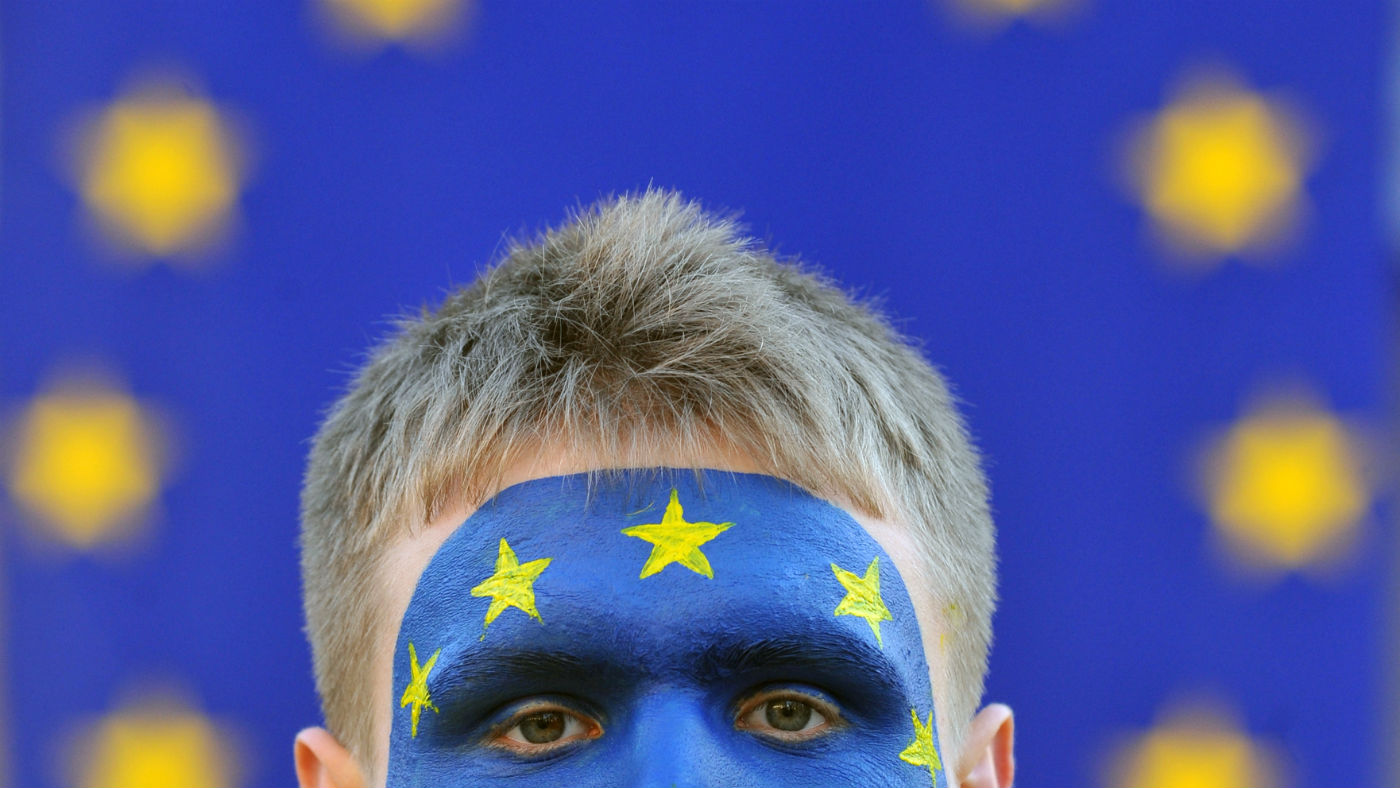EU split over expansion plans
European leaders are divided over enlargement into the Balkans, fearing it could awaken dark forces

A free daily email with the biggest news stories of the day – and the best features from TheWeek.com
You are now subscribed
Your newsletter sign-up was successful
European foreign ministers have clashed over ambitious plans for the EU to expand into the western Balkans.
The European Commission has earmarked six states to join the bloc within the next seven years: Serbia, Montenegro, Bosnia and Herzegovina, Kosovo, Macedonia and Albania.
With Europe facing the challenge of Brexit, high levels of Eurosceptic populism across the continent and a recent Eurobarometer poll showing that more than 60% of Germans, French and Belgians opposed further expansion, it would seem an odd time to step up plans for new members.
The Week
Escape your echo chamber. Get the facts behind the news, plus analysis from multiple perspectives.

Sign up for The Week's Free Newsletters
From our morning news briefing to a weekly Good News Newsletter, get the best of The Week delivered directly to your inbox.
From our morning news briefing to a weekly Good News Newsletter, get the best of The Week delivered directly to your inbox.
The hope in Brussels is that the new members could help to strengthen controls on migration while offering an effective method of countering Moscow’s growing influence in the Balkans and eastern Europe.
Poland, Italy and Austria are among those in favour of including the region, which has seen growing Russian and Chinese influence.
Following the meeting of foreign ministers on Thursday, Austria’s Karin Kneissl told reporters: “Who will be first in Belgrade - China or the EU? It is that we have to counteract, as it is our immediate neighbourhood.”
However, plans for the largest expansion of the EU in two decades “could go down badly with existing member states, as it would mark a significant population increase without the boost in GDP to match”, says the Daily Express.
A free daily email with the biggest news stories of the day – and the best features from TheWeek.com
According to Reuters, Germany is “very reluctant” to expedite the EU’s expansion timetable, pointing to rule-of-law shortcomings in newer member states including Romania, Bulgaria, Poland and Hungary.
Even with the full backing of all 27 EU members, “it will still be a huge challenge for any of the six states to qualify for membership”, says the Financial Times, citing their “links to organised crime, corruption at every level of government, and widespread meddling in the media”.
Bringing states ruled by Balkan strongmen into the EU would also expand the ranks of leaders “closer to Hungary's Viktor Orban”, says Toby Vogel of the Center for European Policy.
Even critics in Brussels “contend the move would fan the flames of nationalism and populism, and give Orban new allies in the bloc”, reports Deutsche Welle.
-
 Political cartoons for February 21
Political cartoons for February 21Cartoons Saturday’s political cartoons include consequences, secrets, and more
-
 Crisis in Cuba: a ‘golden opportunity’ for Washington?
Crisis in Cuba: a ‘golden opportunity’ for Washington?Talking Point The Trump administration is applying the pressure, and with Latin America swinging to the right, Havana is becoming more ‘politically isolated’
-
 5 thoroughly redacted cartoons about Pam Bondi protecting predators
5 thoroughly redacted cartoons about Pam Bondi protecting predatorsCartoons Artists take on the real victim, types of protection, and more
-
 Epstein files topple law CEO, roil UK government
Epstein files topple law CEO, roil UK governmentSpeed Read Peter Mandelson, Britain’s former ambassador to the US, is caught up in the scandal
-
 Iran and US prepare to meet after skirmishes
Iran and US prepare to meet after skirmishesSpeed Read The incident comes amid heightened tensions in the Middle East
-
 Grok in the crosshairs as EU launches deepfake porn probe
Grok in the crosshairs as EU launches deepfake porn probeIN THE SPOTLIGHT The European Union has officially begun investigating Elon Musk’s proprietary AI, as regulators zero in on Grok’s porn problem and its impact continent-wide
-
 Israel retrieves final hostage’s body from Gaza
Israel retrieves final hostage’s body from GazaSpeed Read The 24-year-old police officer was killed during the initial Hamas attack
-
 China’s Xi targets top general in growing purge
China’s Xi targets top general in growing purgeSpeed Read Zhang Youxia is being investigated over ‘grave violations’ of the law
-
 Panama and Canada are negotiating over a crucial copper mine
Panama and Canada are negotiating over a crucial copper mineIn the Spotlight Panama is set to make a final decision on the mine this summer
-
 Europe moves troops to Greenland as Trump fixates
Europe moves troops to Greenland as Trump fixatesSpeed Read Foreign ministers of Greenland and Denmark met at the White House yesterday
-
 Why Greenland’s natural resources are nearly impossible to mine
Why Greenland’s natural resources are nearly impossible to mineThe Explainer The country’s natural landscape makes the task extremely difficult